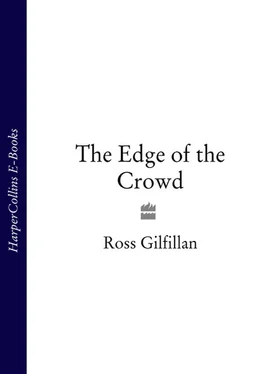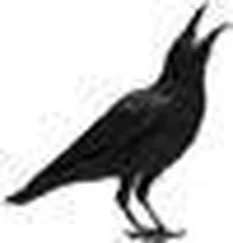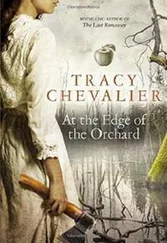But by no means all those who share their views with Touchfarthing are dissenters. Most, in fact, are evidently impressed by the varied marvels of the Exhibition or simply by the novel experience of entering a structure so vast that it can and does contain fully grown trees. The glass and steel edifice itself is the source of infinite wonder to many more. Mr Colin Caldicott, an engineer ‘from Brummagem’, informs Touchfarthing that the Crystal Palace is ‘a modern marvel’. Touchfarthing nods and prepares to duck under his cloth, but Caldicott holds his arm. ‘It’s one thousand, eight hundred and forty-eight feet in length. Four hundred and eight feet in height. An area six times that of St Paul’s Cathedral!’
‘I can well believe it,’ says Touchfarthing.
Caldicott shakes his head as he reads in a flat tone from a catalogue on his lap. ‘Five hundred and fifty tons of wrought iron. Three thousand, five hundred tons of cast iron. Nine hundred thousand feet of glass. Six hundred thousand feet of wooden planking. Two hundred and two miles of sash bars. Thirty miles of guttering.’
Touchfarthing makes a show of producing and checking the face of his silver pocket-watch but another long minute passes before the sitter folds his catalogue and allows Touchfarthing to execute his shilling commission. For the next three hours the performance is the same – a cast of changing faces, a succession of to-ings and fro-ings between the front-of-house chairs and the backstage dark-tent – and it is late afternoon before the last customer, an impatient young hussar, pockets a dried, framed and wrapped photograph and strides quickly across the Park in the direction of Gore House.
The sun has begun to dip towards the western roofscapes; visitors on foot and on wheels are leaving the Park by every exit. Rankin is squatting by his box, funnelling chemicals into bottles. Touchfarthing is uncomfortably close. ‘I feel filthy,’ he says. ‘Like a wretched tradesman.’
‘That was good business we done there,’ says Rankin, jingling the purse. ‘And I’ve the one plate left, if you can find a customer.’
‘No, that’s enough of the mob for one day,’ says Touchfarthing. ‘That plate is saved for Art. The Exhibition by itself will make a very fine picture, I think.’
‘And sell like hot plum-dough,’ Rankin agrees. ‘But I suppose we’ll have to shift everything back to the Gate.’
‘You’ll do that, will you?’ says Touchfarthing. ‘While I calculate the longer exposure. Just take the essentials – it’s only one picture.’
‘And have some vagabond lift everything else? You’d best help out, that’s my belief, guv’nor,’ says Rankin and prepares to lift the camera from its tripod. He hesitates and nudges the other man. ‘Do you suppose that cove got up like an undertaker is waiting his turn?’ To Touchfarthing’s questioning glance, Rankin indicates a lean, pale-faced man dressed wholly in black. The dark and curling locks which depend from the brim of his hat are longer than fashion allows and he wears a pair of green-tinted spectacles. ‘I’ve caught him watching our goings on earlier,’ says Rankin. ‘What’s ’is lay, do you think?’
‘I’m sure he only wants his photograph taken, as do the world and his wife today.’
Touchfarthing’s eyebrows interrogate the man, but he makes no move towards the chairs, only looks a little longer upon the scene before straightening a louche pose and strolling towards the trees, where he becomes a part of a crowd that surrounds the fire-eater whose loud patter and sooty explosions have drawn away the last of Touchfarthing’s trade. ‘Rum fellow,’ Touchfarthing says, frowning as he takes hold of a rope handle. There is a tinkling of glass as the two men swing the great box aboard the wagon.
By the Park gates, Rankin fits a new lens upon the camera, into which is inserted the last of the wet collodion plates. They have been ready for the past quarter hour and Rankin is impatient to quit the Park and fill his belly at Simpson’s chop-house. He observes that ‘Simpson’s is very good for their cutlets’ and that ‘their pies is full of meat with no rubbish’, hoping that Touchfarthing will perceive the wisdom of patronising a place of ‘unbeatable value’ and not squander the day’s takings at Alexis Soyer’s grand new establishment at Gore House, the wonders of which the hussar has left ringing in their ears. ‘Now that’s the sort of place we might make useful connections,’ Touchfarthing had said. ‘It’s the sort of place we might waste a lot of money,’ Rankin had replied.
A vendor is crying his wares by the Park gates: ‘Potatoes, all ’ot!!’ and Rankin is debating with himself whether a further economy might be made by expending a couple of pennies there rather than at Simpson’s, when Touchfarthing claps his hands and exclaims, ‘There, we have it now!’ and points towards his magnificent subject. Even Rankin is forced to admit the beauty of the scene before them. Oblique sunlight lends fleeting solidity and sharply defines a thousand sash bars and gracefully curving flights of iron. The roof-lined flags of all nations which fluttered gaily in the morning breeze now hang heavy in the still evening air and nothing distracts from the audacious simplicity of Paxton’s ingenious design.
‘A pity about all those folk cluttering the middle ground,’ Rankin says. ‘Ain’t they got no homes?’
‘They won’t register on the photograph,’ says Touchfarthing. ‘Not so long as they keep moving. Now then, I shall have to lengthen the exposure in this light.’
Touchfarthing removes the lens cover and hold up his pocket-watch, timing the exposure while impressively signalling to all about that here is a photographist going about his work. And indeed, in the ground between lens and Exhibition are many careless strollers who appear to take notice and who, perhaps in their ignorance, believe that their presence at the Great Exhibition is being recorded on a photograph.
‘I think that will suffice,’ Touchfarthing says as he re-covers the lens. ‘Take care with your process, Rankin. I think I shall be pleased with this picture.’
‘Well, let’s ’ave that plate quickly, then,’ says Rankin, ‘while there’s still enough light to make a print.’ Rankin disappears inside his dark-tent while Touchfarthing, succumbing to the fatigue of a long and busy day, climbs upon the wagon and settles himself in the largest of the assortment of chairs. He begins to doze, his heavy jowl supported by a hefty hand, and would at any moment have given himself up to a deep and languorous sleep, had not Rankin shaken his knee. ‘Guv’nor, you an’t going to like this!’ he says, pulling the torpid Touchfarthing from his seat. He follows Rankin to his bottles and dishes and from one of these Rankin extracts a square of paper which drips a new pattern of stains upon his already particoloured unmentionables.
‘Well, what is it?’ asks Touchfarthing irritably. His sleep-bleared eyes descry the unmistakeable shape of the great glasshouse before them. ‘It looks all right?’
‘It ain’t quite there yet. But watch here, by the tree.’ Rankin holds the developing photograph towards the sunlight and before their eyes the gauzy facsimile darkens and sharpens and detail begins to show: the crazing of the bark on an elm bough, individual panes of glinting glass, the folds of a Union flag.
‘What’s that?’ Touchfarthing explodes. He takes himself and the photograph from the dark-tent, the better to examine it by the last rays of the sun. ‘Ruined!’ he says, his focus fixed upon an unexpected element in his composition. In the bottom corner, separating and becoming distinct from the trunk of a great tree, stands the man in the green-tinted spectacles and funereal clothing. Long exposure has, as the photographer predicted, erased every other idler and stroller from the scene. But this one remains. The subject of the photograph now seems not to be the Great Exhibition but rather a wealthy country gentleman showing off his estate.
Читать дальше












